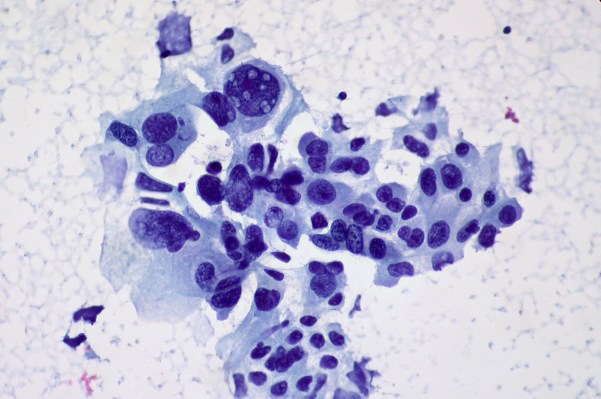John Cassidy’s family has been at the forefront of cancer research for three generations now.
The Cambridge-educated co-founder and chief executive officer of cancer diagnostics company Cambridge Cancer Genomics was just following in his father’s and grandfather’s footsteps when he took up researching the disease in college.
Cassidy’s father was head of cancer therapies at Glasgow University and his grandfather was also a professor researching cancer there.
Joined by three other PhDs from Oxford, Cambridge and Kings College, Cassidy thought it was his turn to take up the mantle.
What Cambridge Cancer Genomics has done, through a combination of new sensing technology and machine learning, is develop a technique that can identify how well cancer treatments are working. That’s incredibly important for getting different therapies to market faster, and for ensuring that targeted therapies are working the way they’re supposed to — ultimately driving down the overall cost for cancer treatments.
“You can detect when people should be off of treatment 7 months earlier than traditional means of analysis,” using the CCG technology, says Cassidy.
That’s incredibly significant for patients diagnosed with the types of cancers that Cassidy and his colleagues are working with — cancers like colorectal cancer, pancreatic cancer and lung cancer.
Joining Cassidy in the journey to create better, more effective cancer therapies are Harry Clifford, a former cancer bioinformatics PhD at Oxford University who serves as chief scientific officer; Evaline Tsai; the chief technology officer who has a BSE in chemical and biological engineering from Princeton; and Nirmesh Patel, the company’s chief medical officer, whose background is in translational cancer medicine, which he studied at Kings College London.
“Two of us come from the same lab in Cambridge,” says Cassidy. “We knew that Evaline was doing a PhD in biosensors at the same time. The other guy was doing a PhD in translational genomics,” Cassidy said.
The company now has a clinical partnership with the Comprehensive Blood and Cancer Center in Bakersfield, Calif. to pilot its technology.
For Cassidy and his compatriots, the decision to launch CCG was all about the patient experience. While amazing work is being done in research centers around the world on cancer therapies and novel treatments, the clinical experience remained relatively unchanged, Cassidy said.
“How patients were being treated was stuck in the ’80s,” he said.
“When you think about something like targeted therapies… they’re super expensive,” Cassidy explained. “The reason they’re expensive is that it’s very difficult to figure out who the drug is going to work for. If you can tell whether the drug is working or not… there’s implications for getting drugs through clinical trials faster.”
CCG tracks mutations in cancer cells, Cassidy explains. “The mutations are easily pinpointed changes in base pairs in DNA. We look for these changes in a patient’s blood,” he said.
The company, which graduated alongside Y Combinator’s recent batch of startups, has already received some pre-seed funding on its way to a $1.3 million targeted seed round.
